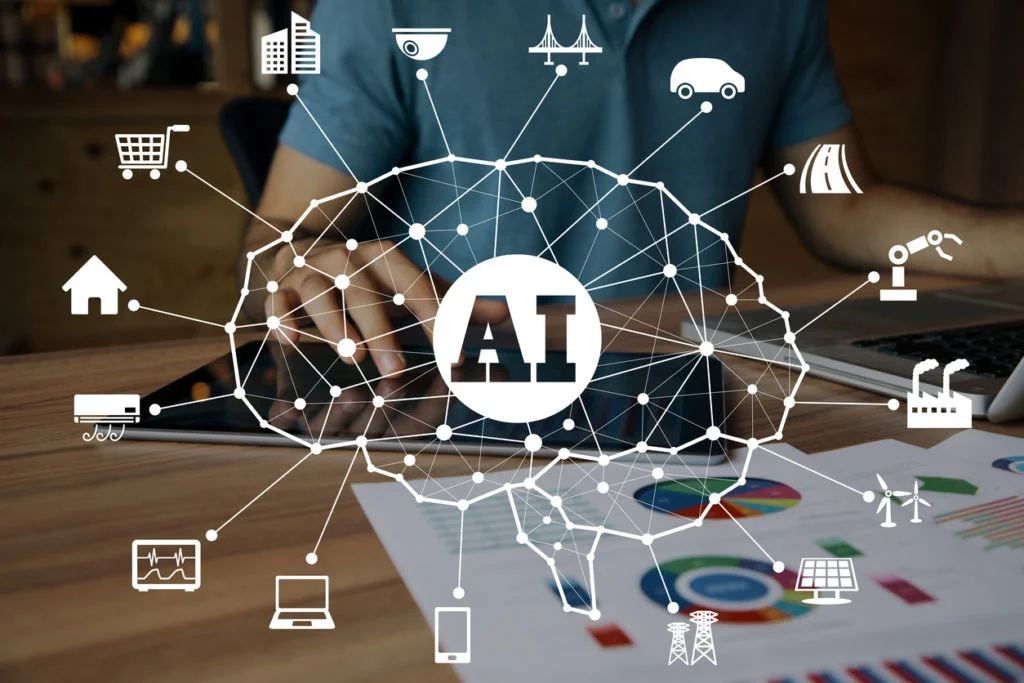The potential for quantum computing to disrupt the entire planet, economies, and industries is enormous. Artificial Intelligence is having an ever-increasing impact all over the world already. With the integration of quantum computing into AI, this influence will be multiplied.
In other words, quantum computing can play an important role in the artificial intelligence revolution. In this article, we will look at how quantum computing can enable and speed up the AI revolution happening globally.
What is Quantum Computing?
Quantum computing is a field of study that focuses on the creation of computer-based systems based on quantum theoretical principles. Quantum theory focuses on the nature and behavior of energy and matter on the quantum—atomic and subatomic levels.
To perform certain computing tasks, quantum computing utilizes a combination of bits. All of this is accomplished at a far higher efficiency than their traditional counterparts. Quantum computers represent a significant advancement in computing capability, with enormous performance benefits for specific use cases.
The qubit, rather than the traditional bit, is the fundamental unit of information in quantum computing. The essential feature of this alternative system is that it allows for the coordinated juxtaposition of ones and zeros, the binary digits that all computing is based on.
Researchers have studied the quantum computer versus classical computer comparison extensively and have long expected that quantum computers would be able to solve specific kinds of problems much faster than any traditional computer, particularly those involving a large number of variables and possible outcomes, such as simulations or optimization questions.
Quantum computing will see a rapid spike in companies using it to their respective industries as technology evolves and becomes more accessible.
For example, computational models that incorporate probability and assumptions about how markets and holdings will perform are frequently used by financial analysts. Quantum computers could help by processing through data faster, running better prediction models, and balancing conflicting alternatives more accurately.
What is Quantum AI?
The usage of quantum computing for the processing of machine learning algorithms is known as quantum AI. Quantum AI can help reach results that are impossible to obtain with traditional computers due to quantum computing’s computational abilities.
Although artificial intelligence has advanced rapidly during the last decade, it has yet to overcome technical limits. Obstacles to achieving AGI (Artificial General Intelligence) can be overcome thanks to the unique capabilities of quantum computing.
Quantum computing can be utilized to train machine learning models quickly and generate more efficient algorithms.
Quantum computing can deliver an optimized and robust AI that can perform years of analysis in a small amount of time, resulting in technological advancements. Some of today’s AI’s fundamental issues include reasoning under ambiguity, adaptable machine learning, and neuromorphic cognitive models. Quantum AI is the best bet to overcome them.
How Does Quantum AI Work?
The processing power necessary to extract value from the presently unmanageable amounts of data being gathered and specifically apply artificial intelligence techniques like machine learning continues to rise.
Researchers have been attempting to speed up these processes by combining quantum computing methods with artificial intelligence techniques, resulting in the birth of a new discipline known as Quantum Machine Learning (QML).
At least for some specific models that are fundamentally difficult to learn with classical computers, quantum machine learning may be more efficient than traditional machine learning.
In the use of quantum computing techniques, machine learning and artificial intelligence systems are two significant areas of research. One of the unique features of this computation method is that it allows several states to be represented at the same time, which is especially useful when utilizing AI approaches.
Voice-assistants, for instance, might benefit immensely from this implementation since quantum could vastly improve their accuracy, enhancing both their computing power and the quantity of data they can handle, according to Intel.
Quantum computing boosts the number of computing variables that machines can handle, allowing them to respond more quickly, much like a human.
Google’s Quantum AI
Google is one of the first quantum computer manufacturers to enter the market. Google announced TensorFlow Quantum in March 2020, which extends the TensorFlow ML development library to quantum computers.
TFQ’s goal is to give people the tools they need to govern and model natural and artificial quantum networks. TFQ is an example of a toolkit that integrates quantum modeling and machine learning. Quantum tensors are a multi-dimensional array of integers that can be used to depict quantum data. TensorFlow processes these tensors to build a dataset that can be used later.
Quantum neural network models are chosen based on the understanding of the quantum data framework. The goal is to use quantum processing to obtain information that is trapped in an entangled state.
Quantum state measurements retrieve conventional data from the classical distribution in the shape of samples. The values are derived directly from the quantum state. Deep learning algorithms are utilized to learn the relationship between data now that quantum data has been transformed into classical data.
The Use Cases of Quantum AI
The usage of quantum computing for computing machine learning algorithms is referred to as “quantum AI.” It makes use of quantum computing’s computational prowess to achieve results that are impossible to attain with traditional computers. With that in mind, the following are some of the most important applications of this super-combination of quantum computing and artificial intelligence.
1. Solving Complex Problems Quickly
Our data sets are becoming more complicated and larger than our processing resources, putting a strain on our computing infrastructure.
While most modern computers struggle or are unable to tackle some issues, quantum computing can solve these same difficulties in seconds.
It’s expected that developments in quantum computing technology will improve artificial intelligence, particularly machine learning, and that this will persist, even before a comprehensive quantum computing solution is available.
2. Processing Large Datasets
Quantum computers are meant to handle massive amounts of data while also swiftly revealing patterns and recognizing anomalies. Developers can now better manage the capacity of quantum bits with every new iteration of quantum computer design and the new enhancements made to the quantum error-correction code.
Quantum Computing also optimizes the same for solving various business challenges so that better decisions may be made.
3. Detecting Patterns in Large Data Sets
Quantum computing is projected to be capable of quickly searching huge, unsorted data sets for patterns or abnormalities. Quantum computers may be able to simultaneously access all things in your database, allowing them to identify these commonalities in seconds.
While this is conceptually conceivable today, it requires a parallel computer to look at each record one by one, which takes an awful lot of time and may never materialize depending on the size of the data set.
4. Assisting IT Operations
Where are our computer systems at risk? When should our hardware or software be upgraded? How can we address incidents more quickly? What percentage of our time is spent on things that could be automated? Big data analysis is the greatest way to address these types of ITOps queries.
These AI queries can provide full visibility into operational data, offering insight in real-time, thanks to the speed provided by quantum computing.
5. Improving Business Insights and Models
Companies are losing their ties with traditional computer rope as the volume of data produced in fields such as life science, finance, and pharmaceuticals increases. Companies today require complicated models with the computing power to model the most complex scenarios to have a better data framework. Quantum computers play a significant role in this.
Using quantum technology to create better models will lead to improved treatments for illnesses in the healthcare sector, such as the COVID-19 research cycle, which includes testing, tracing, and treating the infection. It will also help reduce financial meltdown in the banking sector and strengthen the logistics chain in the manufacturing sector.
6. Integrating Data from Different Datasets
Due to the integration of highly disparate data sets, substantial breakthroughs are envisaged when quantum computers become available. While this may be challenging at first without human participation, human input will aid the computers in learning how to integrate data in the future.
So, if a research team wanted to compare data from separate raw data sources, each with its schema (verbiage and column headers), a computer would need to understand the link between the schemas before the information could be compared.
Breakthroughs in understanding the semantics of the natural language, one of the most difficult tasks in artificial intelligence, are required to achieve this. Humans, on the other hand, can provide input that trains the system for the future.
Quantum computers promise to speed up the processing and integration of our massive data sets, enhancing and transforming our machine learning and artificial intelligence potential.
7. Improving Prediction of Potential Security Risks
It has never been easy to keep pace with the growth of security risks and cyberattacks. However, enterprises can better detect potential security issues and thwart attacks by integrating AI’s data analytics power with the quickness of quantum computing.
As quantum computing and artificial intelligence advance, it’s critical to remember that validating data is just as vital as analyzing it. Data weaponization, tampering with analytics, and derailment of AI systems’ experiential learning is a new form of cyberattacks that should not be overlooked.
8. Detecting Fraud
The integration of AI and quantum computing in the finance industry can help improve the detection of fraud and prevent it. On the one hand, quantum computer-trained models can recognize patterns that are difficult to detect with conventional equipment. Simultaneously, the speeding of algorithms would provide significant benefits in terms of the volume of data that the machines could process for this purpose.
9. Complimenting DevOps
DevOps teams can use quantum computing and artificial intelligence to help them define business goals and priorities, develop new and innovative software solutions, and manage the continuing upkeep and testing of existing applications.
AI data can be used by DevOps teams to help with regression testing, functionality testing, and user acceptability testing. Since quantum computing enables AI to process data from various sources (such as separate, siloed units inside a large corporation), testing can be more consistent and comprehensive.
Final Word
IBM Research reported earlier this year that it had discovered “mathematical proof” of a quantum edge for quantum machine learning. The evidence came in the shape of a classification algorithm that gave a “provable exponential speedup” over traditional machine learning approaches when given access to “classical data.” While there are numerous caveats to that claim, it does provide a glimpse into one future scenario in which quantum AI is viable.
Quantum machine learning is one of the most exciting concepts in computer science, with the potential for a lot of hype and disinformation.
While quantum AI appears to have promise, it is yet to be realized. On the plus side, there seems to be some reason to be hopeful that a genuine breakthrough is on the way.
However, due to a lack of computing power, AI may reach a new plateau in a decade, and quantum computing may emerge as the best bet to aid AI advancement.
It is still too early to know if quantum computing will have a significant impact on AI development. We’re still in the thick of “Noisy Intermediate-Stage Quantum,” or NISQ, as it’s known in the quantum computing community. There are a lot of exciting breakthroughs, but there are still a lot of unsolved questions. We will just wait and see how things unfold in the future.









